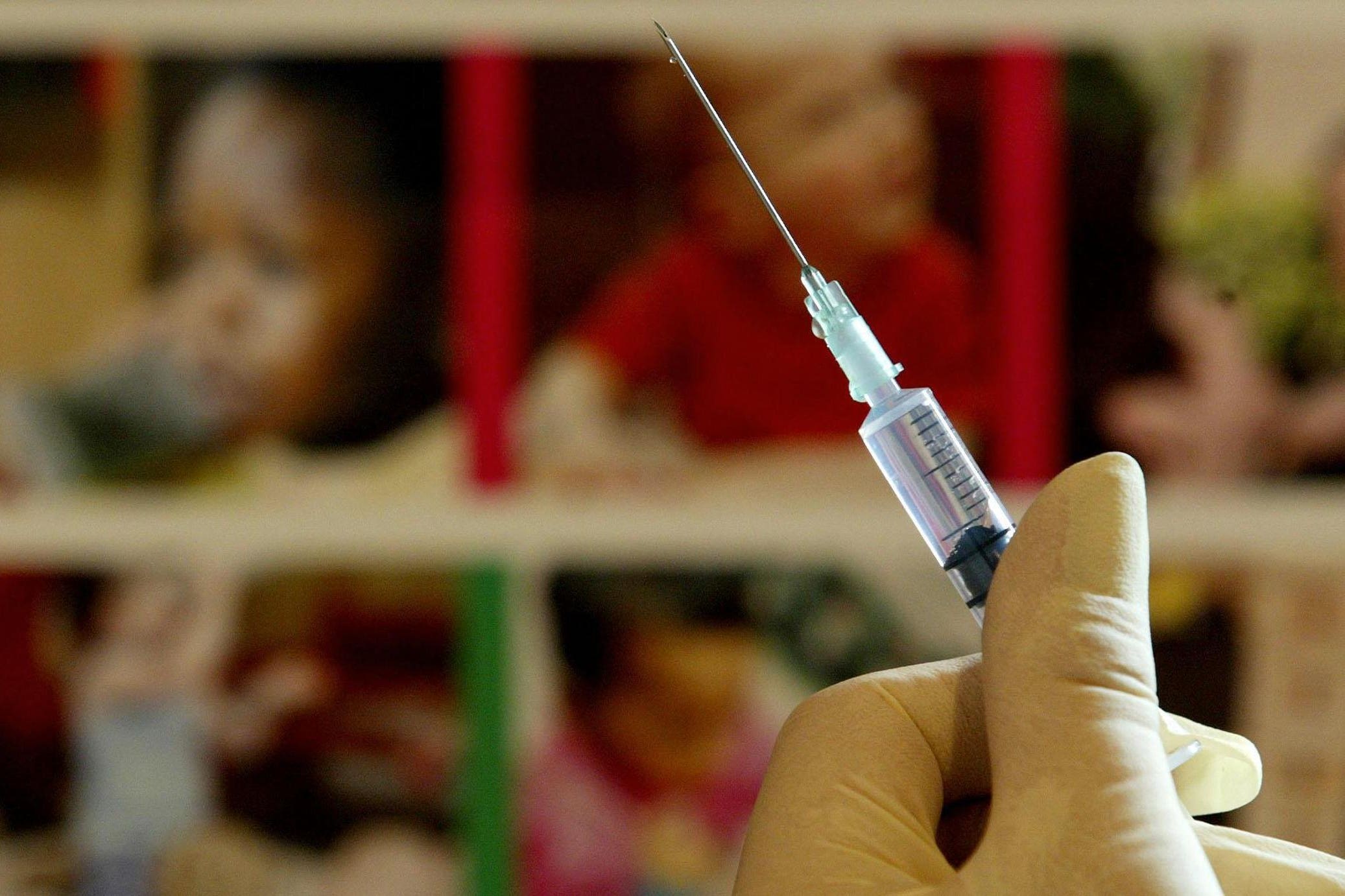Young people urged to get HPV vaccine after drop in take-up
The HPV vaccine is offered to all 12-13 year-olds in schools and community clinics.

Your support helps us to tell the story
From reproductive rights to climate change to Big Tech, The Independent is on the ground when the story is developing. Whether it's investigating the financials of Elon Musk's pro-Trump PAC or producing our latest documentary, 'The A Word', which shines a light on the American women fighting for reproductive rights, we know how important it is to parse out the facts from the messaging.
At such a critical moment in US history, we need reporters on the ground. Your donation allows us to keep sending journalists to speak to both sides of the story.
The Independent is trusted by Americans across the entire political spectrum. And unlike many other quality news outlets, we choose not to lock Americans out of our reporting and analysis with paywalls. We believe quality journalism should be available to everyone, paid for by those who can afford it.
Your support makes all the difference.Health chiefs are urging young people to make sure they receive the HPV vaccine, with new figures showing around one in six girls and one in five boys in England are not vaccinated by school year 10.
The HPV (human papillomavirus) vaccine helps protect against a range of cancers, including cervical, head and neck, anal and genital cancers, which can affect both girls and boys.
It is offered to all 12-13 year-olds in schools and community clinics, but parents are required to give consent for their child to receive the jab from NHS nurses.
The successful HPV vaccination programme already helps save thousands of lives, but through increasing uptake in young people, alongside boosting the numbers coming forward for cervical screening, the NHS in England hopes to eliminate cervical cancer by 2040
Two doses have traditionally been needed for full protection, with the first dose offered in year 8 (children aged 12 to 13) and the second dose in year 9 (aged 13 to 14 years), though some local NHS providers offer both doses in the same school year, so long as the jabs are six months apart.
Some 75.7% of girls in year 9 in England had received at least one dose of HPV vaccine by the end of the 2022/23 school year, down from 82.2% in 2021/22 and well below the pre-pandemic level of 88.9% in 2018/19, according to the UK Health Security Agency (UKHSA).
First-dose coverage among boys in year 9 stood at 69.7% at the end of 2022/23, down from 77.6% in 2021/22 and also some way below the pre-pandemic level of 88.9% in 2018/19.
Among year 10 girls, take-up of first doses stood at 83.2% in 2022/23, down year-on-year from 86.5%, while for boys the figure stood at 78.6%, down from 81.5%.
Steve Russell, NHS England national director for vaccinations and screening, said: “The successful HPV vaccination programme already helps save thousands of lives, but through increasing uptake in young people, alongside boosting the numbers coming forward for cervical screening, the NHS in England hopes to eliminate cervical cancer by 2040.
“Today’s figures show that at the end of the 2022/23 academic year, over 500,000 girls and boys have been vaccinated with a dose of protection against the virus by the end of year 10.
“However, there are over 50,000 girls and over 70,000 boys in year 10 who were unvaccinated against HPV, so we’re urging parents of young people eligible for a vaccine to consent to their children getting their HPV vaccines from nurses when they visit schools.
“With just one dose now offering full protection to under-25s, it is easier than ever to ensure your child is fully protected – so please do check your child’s vaccination status and consent for them to get vaccinated if they aren’t up to date.”
Starting with the current 2023/24 school year, the HPV vaccine is being offered to most under-25s as a single dose instead of two doses, in light of updated guidance from the Joint Committee on Vaccination and Immunisation (JCVI).
The HPV vaccination programme is one of the most successful in the world with millions of doses given since it started in 2008
The latest figures also show a slight improvement in first-dose take-up among year 8 girls in England, with 71.3% in 2022/23, up from 69.6% in 2021/22, though well below the 88.0% for 2018/19.
For year 8 boys, first-dose take-up stood at 65.2% in 2022/23, up from 62.4% in 2021/22 but below 71.0% for 2020/21.
Dr Vanessa Saliba, UKHSA consultant epidemiologist, said: “The HPV vaccination programme is one of the most successful in the world with millions of doses given since it started in 2008.
“It has dramatically lowered the rates of cervical cancer and harmful infections in both women and men – preventing many cancers and saving lives.
“All girls and boys in year 8 are eligible for the HPV vaccine and evidence now shows that one dose gives excellent protection. We urge everyone who is eligible to take up this potentially lifesaving vaccine when offered.
“If you missed your HPV vaccine, contact your school nurse, school immunisation team or GP practice to arrange an appointment – you can catch-up until your 25th birthday.”